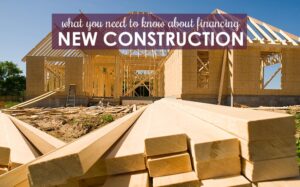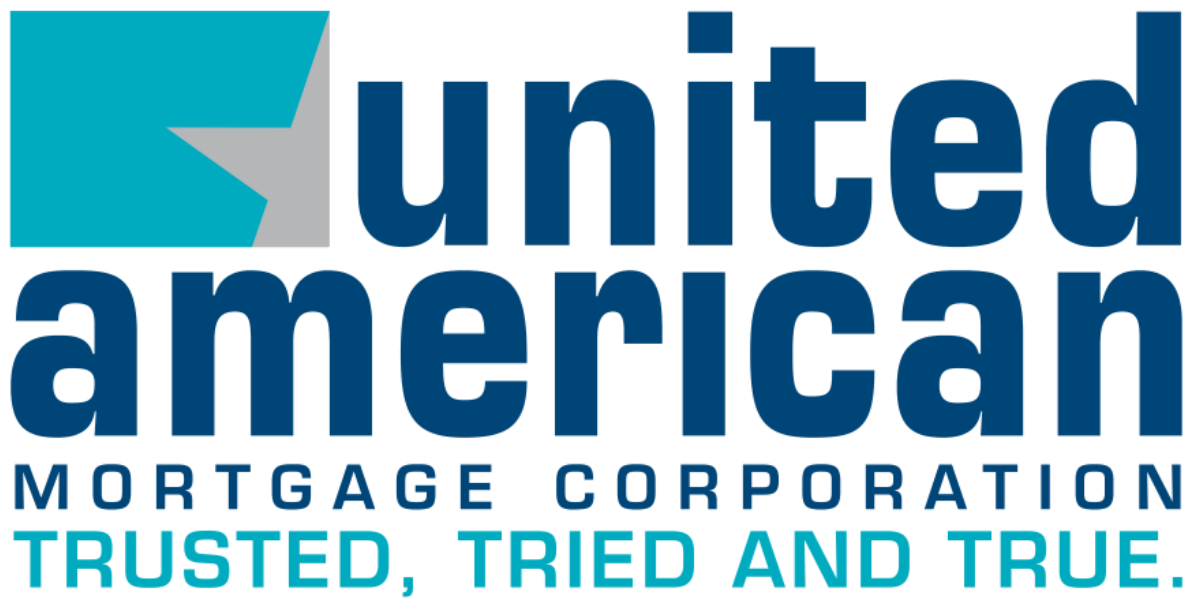Construction Loans
Everything You Need to Know About Residential Construction Loans
 Are you planning to build your dream home but don’t have the cash upfront? Residential construction loans may be the answer you’re looking for. These specialized loans are specifically designed to help individuals and families build their own houses from the ground up.
Are you planning to build your dream home but don’t have the cash upfront? Residential construction loans may be the answer you’re looking for. These specialized loans are specifically designed to help individuals and families build their own houses from the ground up.
In this article, we’ll dive into everything you need to know about residential construction loans. From understanding the basics to exploring the different types of loans available, we’ll provide you with the knowledge you need to make an informed decision.
Whether you’re a first-time homebuilder or an experienced DIY enthusiast, this comprehensive guide will walk you through the entire process of obtaining a construction loan. We’ll cover the application process, how to qualify, the required documentation, and the timeline for funding.
We’ll also discuss the pros and cons of residential construction loans, as well as some tips to make your building project a success. So, if you’re ready to turn your vision into reality, read on to discover everything you need to know about residential construction loans.
How do residential construction loans work?
Residential construction loans are a type of short-term financing that helps homeowners build their dream homes. Unlike traditional mortgages, which are used to purchase existing homes, construction loans are specifically tailored for the construction process.
During the construction phase, the borrower typically makes interest-only payments on the loan. Once the construction is complete, the loan can be converted into a traditional mortgage or paid off in full.
One of the key features of a residential construction loan is the disbursement process. Instead of receiving the full loan amount upfront, the funds are disbursed in stages, known as draws. These draws are based on the completion of specific milestones or stages of the construction project.
It’s important to note that construction loans usually have higher interest rates compared to traditional mortgages. This is because they are considered riskier for lenders, as the property is not yet built and therefore cannot be used as collateral. However, the interest is only charged on the amount disbursed, not the entire loan amount.
Speedy Quote
Take the first step to getting the best home loan for you.
Types of residential construction loans
There are several types of residential construction loans available, each with its own set of advantages and requirements. Let’s take a closer look at the most common types:
- Construction-to-Permanent Loans: Also known as “one-time close” loans, construction-to-permanent loans combine the construction loan and the permanent mortgage into a single loan. This type of loan eliminates the need for a separate closing and two sets of fees.
- Stand-Alone Construction Loans: Stand-alone construction loans are short-term loans that cover the construction phase only. Once the construction is complete, the borrower must obtain a separate mortgage to pay off the construction loan.
- Renovation Construction Loans: If you’re planning to renovate an existing property or make significant improvements, a renovation construction loan may be the right choice. These loans provide funds for both the purchase or refinance of the property and the renovation costs.
Eligibility requirements for residential construction loans
To qualify for a residential construction loan, borrowers must meet certain eligibility requirements. While the specific criteria may vary depending on the lender and loan program, here are some common requirements:
- Good Credit: Lenders typically require a credit score of at least 680 to qualify for a construction loan. A higher credit score may result in better interest rates and loan terms.
- Proof of Income: Borrowers must provide documentation to demonstrate their ability to repay the loan. This may include tax returns, W-2 forms, and recent pay stubs.
- Down Payment: Most construction loans require a down payment of at least 20% of the total project cost. This shows the lender that the borrower has a vested interest in the project’s success.
- Detailed Construction Plans: Lenders will require detailed plans and specifications for the construction project, including blueprints, cost estimates, and a timeline.
- Experienced Builder: Working with an experienced builder is crucial. Lenders often require borrowers to use licensed contractors or builders with a proven track record.
Application process for residential construction loans
The application process for a residential construction loan can be more complex compared to a traditional mortgage. Here are the key steps involved:
- Prequalification: Start by getting prequalified for a construction loan. This will give you an idea of how much you can borrow and help you set a realistic budget for your project.
- Gather Documentation: Collect all the necessary documentation, including financial statements, tax returns, and proof of income. You’ll also need to provide detailed construction plans and cost estimates.
- Submit the Application: Complete the loan application and submit it to the lender along with the required documentation. Be prepared to answer any additional questions or provide further information during the underwriting process.
- Underwriting and Approval: The lender will review your application and documentation to assess your creditworthiness and the feasibility of the construction project. This process may take several weeks.
- Loan Closing: If your application is approved, you’ll proceed to the loan closing. During this stage, you’ll sign the necessary paperwork and pay any closing costs or fees.
- Construction Phase: Once the loan is closed, the construction phase begins. The lender will disburse funds in stages based on the completion of specific milestones or stages of the project.
- Conversion or Payoff: Once the construction is complete, you’ll either convert the loan into a permanent mortgage or pay off the loan in full, depending on the type of construction loan you obtained.
Choosing the right lender for your residential construction loan
When it comes to choosing a lender for your residential construction loan, it’s important to do your research and consider several factors. Here are some key points to keep in mind:
- Experience and Reputation: Look for lenders with experience in residential construction loans and a good reputation in the industry. Read reviews and ask for recommendations from builders or real estate professionals.
- Loan Programs and Terms: Compare the loan programs and terms offered by different lenders. Pay attention to interest rates, fees, and repayment options to find the best fit for your needs.
- Communication and Support: Building a home is a complex process, so it’s important to choose a lender that provides excellent communication and support. Look for a lender who is responsive and willing to answer your questions.
- Builder Relationships: Some lenders have established relationships with preferred builders or contractors. Working with a lender who has these relationships can streamline the construction process and potentially save you time and money.
- Flexibility and Customization: Every construction project is unique, so look for a lender who offers flexibility and customization options. This can include the ability to make changes to the loan amount or terms as the project progresses.
Understanding the terms and conditions of residential construction loans
Before committing to a residential construction loan, it’s crucial to fully understand the terms and conditions. Here are some key factors to consider:
- Loan Amount and Disbursement: Determine the loan amount you’ll need to cover the construction costs. Understand how the funds will be disbursed and the specific milestones or stages required for each draw.
- Interest Rate and Repayment: Pay close attention to the interest rate and repayment terms. Remember that during the construction phase, you’ll typically make interest-only payments. Once the construction is complete, the loan may convert to a traditional mortgage with principal and interest payments.
- Construction Timeline: Understand the estimated timeline for the construction project and how it aligns with the loan term. Make sure the loan term is sufficient to cover the entire construction process.
- Contingency Funds: Building a home can come with unexpected costs and delays. Consider setting aside contingency funds to cover any unforeseen expenses that may arise during the construction process.
- Appraisal and Inspections: Lenders will require an appraisal of the property before approving the loan. They may also perform regular inspections during the construction phase to ensure the project is on track.
Managing and disbursing funds during the construction process
During the construction phase, funds from the residential construction loan are disbursed in stages, known as draws. Here’s how the disbursement process typically works:
- Draw Schedule: The draw schedule outlines the specific milestones or stages of the construction project when funds will be disbursed. This schedule is agreed upon by the borrower, lender, and builder before the loan is closed.
- Inspection and Approval: Before each draw, the lender will send an inspector to verify the completed work and ensure it aligns with the agreed-upon milestones. Once the inspector approves the work, the funds are released.
- Payment to Contractors and Suppliers: Once the funds are disbursed, the borrower is responsible for paying the contractors, subcontractors, and suppliers involved in the construction project. It’s important to keep track of all payments and maintain proper documentation.
- Overages and Change Orders: If the construction costs exceed the initial loan amount, the borrower may need to cover the additional expenses out of pocket. This can happen due to unforeseen circumstances or changes in the original plans.
Risks and considerations of residential construction loans
While residential construction loans can be a valuable tool for building your dream home, they also come with certain risks and considerations. Here are a few to keep in mind:
- Cost Overruns: Building a home can be more expensive than anticipated. It’s important to have a realistic budget and set aside contingency funds to cover any unexpected costs or delays.
- Construction Delays: Construction projects can face delays due to weather conditions, material shortages, or unforeseen issues. These delays can impact the timeline and increase costs.
- Interest Rate Fluctuations: Construction loans typically have variable interest rates, which means they can fluctuate over time. It’s important to consider the potential impact of interest rate changes on your monthly payments.
- Selling or Refinancing Challenges: If you plan to sell or refinance your home shortly after construction, it’s important to understand the potential challenges. Selling a newly constructed home may require additional marketing efforts, while refinancing can involve additional costs and paperwork.
- Builder Bankruptcy or Default: In rare cases, the builder may face financial difficulties, bankruptcy, or default during the construction process. This can lead to delays or even the inability to complete the project. It’s important to work with reputable builders and have contingency plans in place.
Conclusion: Is a residential construction loan right for you?
Residential construction loans can provide the financial support needed to turn your dream home into a reality. However, they also come with risks and considerations that must be carefully evaluated. Before deciding whether a residential construction loan is right for you, consider your financial situation, construction plans, and long-term goals.
If you’re confident in your ability to manage the construction process and navigate potential challenges, a residential construction loan can be a valuable tool. It’s important to work with experienced professionals, including lenders and builders, to ensure a successful outcome.
Remember to thoroughly research your options, compare loan programs, and carefully review the terms and conditions before committing to a residential construction loan. With proper planning and the right support, you can build the home of your dreams and create a space that reflects your unique vision and lifestyle.
Contact Scott English today to find out how he can help you find the best mortgage options and rates for you!


